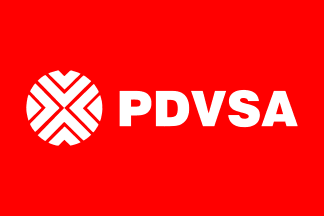Venezuela shelved a planned sale of about $10 billion in U.S. refineries as surging North American crude output pushes down energy prices and profit margins.
The country ruled out selling its U.S.-based refining subsidiary Citgo Petroleum Corp., Finance Minister Rodolfo Marco Torres told Caracas-based El Universal in an interview published yesterday. The nation will keep investing in Citgo, he said, echoing comments made by President Nicolas Maduro last month.
Citgo said in a July 29 filing that state-owned oil company Petroleos de Venezuela SA was looking for a buyer, threatening to undermine bondholders and other creditors by removing a sovereign asset that could be seized in the U.S. in the event of a default. Former oil minister Rafael Ramirez said in August that Citgo was worth at least $10 billion, while Barclays Plc said last month that the company’s equity value is between $7 billion and $9 billion.
“Refining margins have fallen and we have seen some of the Citgo refineries involved in unscheduled downtime,” Andy Lipow, president of Houston-based energy consultant Lipow Oil Associates LLC, said in a telephone interview on Oct. 24. “Those are issues more on the minds of potential buyers than the price of oil.”
West Texas Intermediate for December delivery fell close to a two-year low of $81.01 a barrel on the New York Mercantile Exchange on Oct. 24.
Bond Market
Venezuela’s Information Ministry didn’t immediately respond to an e-mail sent outside of normal business yesterday seeking comment on the reason for the suspension of the sale.
The sale of Citgo could have undermined PDVSA’s cash flow in the medium term and cost it market leverage in the U.S., Eurasia Group analyst Risa Grais-Targow said in an interview from Washington on Oct. 17.
Venezuela’s dollar bonds posted the best week in six months after Maduro fueled speculation that the sale wouldn’t go through when he said on Sept. 23 that his government would strengthen the refining company.
The country has started talks with Exxon Mobil Corp. (XOM) after a World Bank arbitration court ruled earlier this month that the country must pay the company $1.6 billion for assets seized in 2007, Marco Torres told El Universal. The country will make payments after it sets a schedule with Exxon, he told the newspaper.
No Trouble
Maduro on Oct. 22 blamed foreign media for spreading fears that falling oil prices would push the country closer toward defaulting on its foreign debt. Yields on its benchmark dollar bonds due in 2027 hit a five-year high of 17.88 percent on Oct. 15 after Harvard University economists Carmen Reinhart and Kenneth Rogoff said the country probably would default.
Venezuela on Oct. 8 paid $1.56 billion of government bonds that matured. PDVSA will not have trouble paying $3 billion of bonds that mature on Oct. 28, Marco Torres told El Universal.
An off-budget fund known as Fonden and loans from China will help Venezuela manage lower oil prices, Marco Torres said in the interview, adding that the country will be able to meet all of its commitments. Venezuela’s oil export basket price fell to a four-year low of $75.90 a barrel in the week ended Oct. 24, according to the oil ministry.
An adjustment to economic policies would be “unavoidable” at current oil prices, Barclays Plc said in an Oct. 22 note to clients, adding that the government could sell Citgo, reduce subsidized oil shipments to Caribbean countries, devalue its currency or renegotiate loans from China.
Fight Inflation
Venezuela is continuing to review the domestic price of gasoline, in addition to currency and fiscal policies, Marco Torres said in the interview with El Universal, adding that Maduro has the final say on any changes.
Former oil minister Rafael Ramirez said in May the country’s policy of selling gasoline for $0.06 a gallon, the cheapest in the world, cost $12 billion a year.
Marco Torres told El Universal that Venezuela was working to fight inflation, currently the fastest in the world at 63 percent, and increase national production. When asked by the newspaper why the country had delayed reporting data on its gross domestic product, he said the central bank was doing excellent work and would continue to do so next year.
To contact the reporters on this story: Nathan Crooks in Caracas at ncrooks@bloomberg.net; Pietro D. Pitts in Caracas at ppitts2@bloomberg.net
To contact the editors responsible for this story: James Attwood at jattwood3@bloomberg.net Sylvia Wier, Theo Mullen

No comments:
Post a Comment